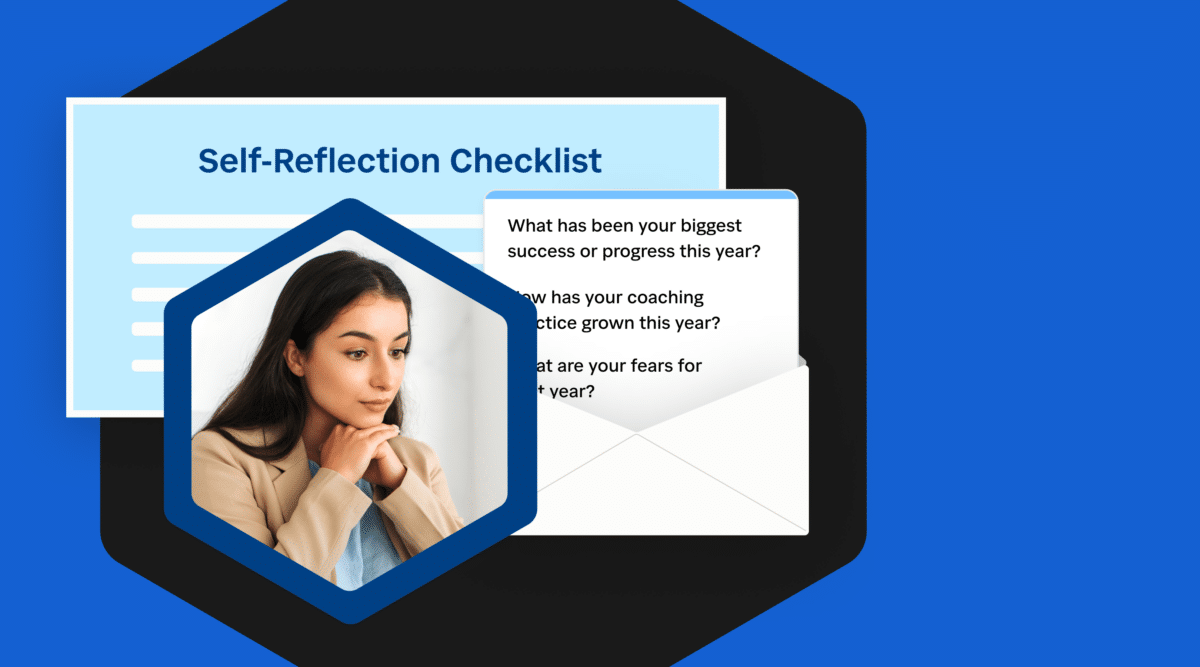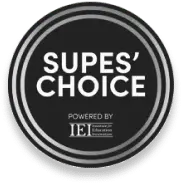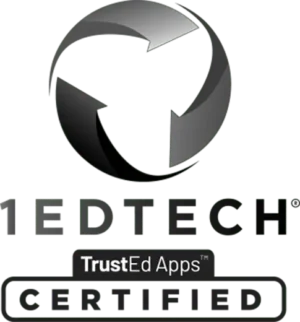
Jennifer Ivory, instructional coach in the Middle East, reflects on how she developed a questioning and listening checklist to support her coaching conversations after realizing she wasn’t consistently hitting the mark.
In September 2021, I started my journey as an instructional coach. When I sat down to plan my goals, I decided to make them data-driven and whole-school focused. Naively, I paid no heed to my recent school-mandated self-assessment and—without meaning to—ignored everything I had learned from a recent course with Jim Knight and the Instructional Coaching Institute.
When I had my goal-setting conversation with my Head of Department, I realized I wasn’t setting the kinds of goals a progress partner should make, nor did I address any of the competencies of an instructional coach. The conversation left me frustrated and anxious, on top of struggling with imposter syndrome as a first-year coach.

Know Thyself
I closed my eyes and allowed myself time to think about who I am as a person and professionally, plus who I needed to be as a successful instructional coach. Then, I came to the following realization: I am a good “doer”—I work best when I feel like I am actively doing something to produce an end product. I am a terrible listener, a problem-solver with an “act first, think later” attitude.
Knowing this about myself, I decided to become a better listener and questioner. But to ensure I was actively learning and actively getting better as a coach, I also needed something to do physically to keep me on track towards my goal throughout the year.
A Frankenstein Approach
As teachers, we get multiple opportunities to see our students’ “ah-ha” moments throughout the day. On the other hand, coaches need to set aside time for reflection to gauge whether the adults we partner with respond in the way we expected.
To help, I created a coaching conversation reflection checklist for myself, based on my learning with Jim Knight and my readings of Diane Sweeney and Elena Aguilar. I “Frankensteined” my learnings and came up with what I consider to be an immensely helpful and practical “Monster.” (You may have guessed, rightly, that I’m a literature teacher!)
Being a “doer” means that I like to have a finished product at the end of any task, which is exactly what my checklist gives me. It allows me to have a quick and easy method of completing a reflection that supports my learning journey through the Coaching Institute. By using the checklist, I can compare checks and notes after four or five conversations to see if I have shown any growth.
What Happened Next
When I began my coaching campaign this academic year, I was fully online, which meant that I could record my coaching conversations and watch them back with the coachee’s permission. I check off the type of questions I have used and write supplementary notes on where to improve next time. Usually, it turns out that I talk too much, or I don’t have the poker face I thought I did.
Now that I am back on campus, I’m struggling to use the checklist because recording takes away from the fluidity of my conversations. When I sit with the checklist after a conversation, I don’t have a video to use, which hinders the “doing” nature of the reflection. I am, however, a problem solver, so what I have been attempting is to take the checklist with me to my meetings and mark it off as I go. It has been going ok so far, but when I have to come back to my desk and upload everything, I tend to slack. Maybe an iPad is my best bet here?
Final Note
As you can see, my current checklist focuses on the competency of questioning, but as coaches, we know that listening is just as—if not more—important. My plan is to show that I’m satisfied with this skill, and then add a column that allows me to become a better listener.
I think the goal that I have set for myself this year is attainable, but it will require me to be extremely deliberate in taking the time to indulge in reflection.
About Our Guest Blogger
Jennifer is a first year instructional coach in the Middle East. Coming from Ireland, where instructional coaching is not something many are familiar with, the concept was brand new to her until 3 years ago. In her tenth year in education, she has experience teaching in Ireland, London, Sri Lanka, and Kuwait. As an English Literature and Language teacher, she has taught grades 6-12 with most of her time spent doing what she likes best—helping get Grade 8 students ready for their high school journey.
As a first year coach, one of Jennifer’s goals is to improve her questioning and listening skills, and in turn, help teachers and administrators understand the power of self-reflection and its link to classroom effectiveness. She hopes to build connections with new and experienced coaches through social media. By sharing her reflection tools, Jennifer wants to help new coaches in their self-reflection for improvement journey and hopes to receive feedback from any experienced coaches that might help her improve.
Stay Connected
News, articles, and tips for meeting your district’s goals—delivered to your inbox.




















